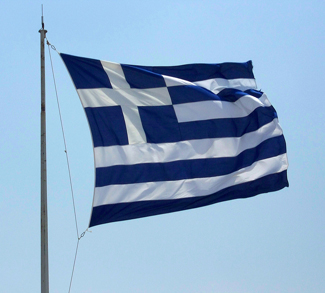Summary
A decade ago Argentina was in the midst of a severe economic crisis. The episode offers lessons for the Eurozone today, particularly Greece. There are more similarities than differences.
Analysis
The parallels between the sagas of Argentina and the Eurozone are important and instructive. Cavallo (2011) has broached the issues; here I offer an alternate view of the lessons for Europe. This is based on my somewhat different view of the key flaws that led to the demise of Argentina’s experiment with a currency board.
While the analogy with Argentina in its turn-of-the-century crisis is closest with respect to Greece, aspects of the fatal flaws that brought down Argentina’s currency regime are shared by all of the Eurozone members.
– Argentina’s banking sector was heavily dollarised.
– Its lender of last resort—Argentina’s central bank—did not have sufficient dollars to maintain the liquidity of the banking system in case of a panic.
– Neither the government nor the central bank could borrow in the international markets to obtain additional foreign currency.
When an external shock hit—a shock that would normally require devaluation—the lack of exchange-rate flexibility combined with the lack of confidence-assuring backstop facilities (lender of last resort or government bank bailout) triggered a cycle of fear and bank withdrawals. The economy slipped into recession, attempts at austerity just made things worse, and eventually the banking system and the currency board collapsed. Argentina defaulted on its national debt and suffered a severe recession.
How different is the situation in Europe today?
– Eurozone banks are entirely euro-ised.
– It has a lender of last resort—the ECB—which has the ability to provide unlimited liquidity, though often times it has been hesitant to do it.
– Some of the national governments lack the fiscal room to bailout their large banks directly (eg when Ireland did it in 2008, the country itself needed an IMF bailout).
– Normal devaluation is ruled out by participation in the Eurozone.
– Some Eurozone nations are in recession.
How Argentina struggled with its crisis
Argentina tried to avoid default, first by resorting to a large financial package from the multilateral institutions (the so-called “shield” or blindaje) and then by implementing a debt mega-swap which included most of the debt held by banks. Argentina tried in vain to restore its competitiveness through domestic deflation, and to improve solvency by improving the fiscal accounts in the midst of a recession.
In the end, none of these efforts worked and the country faced its worst economic and financial crisis ever.
Greece is now attempting the same things. So far things are not going well. Greece has so far received two large financial assistance packages (the equivalent of the shield) and is now negotiating the equivalent of the mega-swap (the 21 July 2011 private-sector participation scheme).
Will Greece end up like Argentina?
Greece seems to be following Argentina’s steps very closely. Is it likely to end up the same way?
Before jumping to conclusions, it is useful to highlight the differences.
One difference that favours Greece is its membership in the EU, which has been supporting Greece to avoid contagion to other member countries.
In Argentina, by contrast, the IMF and the international community favoured a financial collapse as it would teach a lesson to reckless investors and address moral hazard issues.
A second difference is that Greece has a lender of last resort, the ECB, which can in theory print as many euros as it wants; this is an important deterrent of bank runs.
That was not the case in Argentina, where the US Federal Reserve was not willing to assist Argentina while the IMF did not have enough financial resources to do so.
On the other hand, the parallels between the two countries are startling.
Both of them suffered severe recessions, large increases in the rate of unemployment, and overvalued currencies.
The fundamentals got out of line in both – but the imbalances are much, much larger for Greece than they were for Argentina.
For instance, the current account and budget deficits, as well as the debt burden, are roughly three times larger in Greece today than those of Argentina prior to the crisis.
Another similarity is that neither of the two countries could resort to a depreciation of the currency in order to restore competitiveness or to improve the fiscal balance—in Argentina because it had a currency board and a strong commitment to the fixed exchange rate; in the case of Greece because it lacks a currency altogether.
A third similarity was the insistence on fiscal adjustment to restore long-term solvency.
In Argentina the government announced numerous packages, which were often part of IMF programmes (one of them even included a law passed by Congress just three months prior to the final collapse that required a balanced budget).
The problem with this approach was always the same. The fiscal contraction failed to restore confidence. It made the recession worse, thereby reducing tax revenues. The reaction was to embrace more draconian austerity which deepened the recession and further cut tax receipts. This was a vicious circle with no way out.
Argentina’s fundamental problem
The fundamental problem was that the fiscal adjustments did not—as had been expected—restore solvency and investor confidence, just the opposite. Something similar is happening today in Greece, where fiscal austerity is failing to restore confidence and is making the recession worse.
In the end, investors know that growth is the only way to get out of the debt trap and it does not seem that it will happen through reductions in government expenditures or increases in taxes. Deflation is not happening either, and therefore the big question is how and when Greece can grow.
Lessons for the Eurozone
What lessons can we draw from the Argentine experience?
A first lesson is that reductions in the fiscal deficit through decreases in nominal expenditures or increases in taxes in the midst of a recession do not work—austerity just makes the recession worse.
Prior to the crisis, the Argentine government announced, and in some cases managed to put in place, a number of fiscal packages that included cuts in expenditures and/or increases in taxes. In the end none of them worked. The implications for Greece are clear. Trying to improve the fiscal accounts in a recession is an impossible job, especially if the country is not expected to grow. This is likely to become a protracted process that will be difficult to maintain. In the end, in the case of Argentina, it was derailed by social and political unrest.
The second lesson is that when the public sector is large and there are powerful unions, it is extremely difficult to correct an overvalued currency through deflation.
In fact, there are very few examples in recent decades of economies that have managed to achieve the real depreciation through reductions in domestic wages and prices. In Argentina it was possible to reduce wages in the private sector, but it became almost impossible when the government tried to reduce public sector wages or pensions.
A third lesson is that a devaluation in a dollarised economy (euro-ised in the case of Greece) can be problematic as it can lead to significant balance-sheet problems that need some form of government intervention.
While a real depreciation can improve the trade and fiscal accounts (the effect on the flows), it is expected to have adverse effects on debtors.
In Argentina the government tried to mitigate this adverse effect through the forceful conversion of most financial assets and liabilities that were denominated in dollars into pesos at the old parity (this is now widely known as the “pesification”). This policy was widely criticised because it definitely affected property rights—the exchange rate that was used to convert the assets and liabilities was arbitrary and implied excessively large transfers of wealth from creditors to debtors. What is clear, though, is that large depreciations require government policies to limit the effects on debtors in order to avoid widespread bankruptcies in the economy.
A fourth lesson is that non-convertible quasi-currencies (QCs) can be a roundabout away to restore a limited degree of monetary and exchange rate policies.
The provinces that were facing severe fiscal problems and could not issue debt in the capital markets ended up printing the so-called QCs to pay wages and other expenditures. These quasi-currencies were used to pay current expenditures such as wages and the purchase of goods and services. They were in fact debt instruments that looked like peso bills, and were used in daily transactions and to pay provincial taxes. Most of the provincial QCs traded at a discount over the peso.
The QCs helped to limit the recessionary effects of the financial constraints, as they provided liquidity and provided financing to sub-national governments for whom the only alternative would have been to go into arrears. Most of the provincial QCs traded at a discount, so in effect the provinces managed to generate a depreciation relative to the peso.
The QCs could eventually become an alternative for countries like Greece, who have lost access to the voluntary debt markets and have an overvalued currency. It is perhaps the only way to temporarily achieve a depreciation while staying in the Eurozone. It would imply a dual currency system (i.e. the co-existence of the euro and say the drachma), which can perhaps be useful in a transition while the country deals with the debt problems and improves it long-term competitiveness.
The working of a dual currency system is not easy though, especially because it can create problems in the banking system, and the extent to which the new currency depreciates relative to the euro can affect the ability of firms and individuals to pay the loans denominated in euros.
Conclusion
The Argentine crisis suggests that unless Greece takes major steps to improve its competitiveness and growth prospects, the country has little hope to get out of this crisis unscathed. However, due to the extent to which its banks continue to get access to financing from the ECB, and to which the EU is still willing to rollover its debt, there is not an obvious trigger for a currency or debt crisis, and the current situation could linger for quite a long time.



